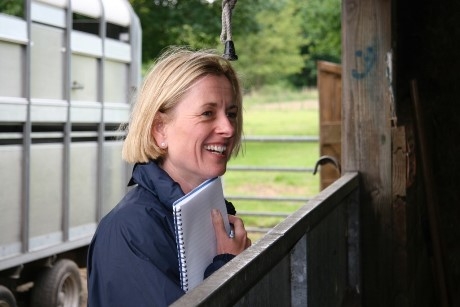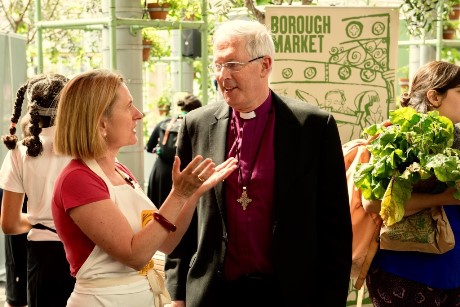
School Travel Organiser talks to Stephanie Wood, the founder of the charity School Food Matters, about the importance of food education.
Q. Can you explain a bit about your role in School Food Matters?
A. School Food Matters (SFM) is a small charity based in London. I founded the charity in 2007 as a parent perplexed by the school food offered to my two small children; frozen food, unappealing and quite often unidentifiable.
I had also heard a head teacher declare that children at his Primary school couldn't identify an onion, let alone know what to do with it. There was clearly a job to be done.
Q. What does School Food Matters aim to achieve?
A. Our mission is to ensure that every child enjoys fresh sustainable food at school and understands where their food comes from. We do two things; we campaign for better school food, and we devise, develop and deliver food education programmes for schools.
That’s where learning outside the classroom comes in. We deliver sessions in cooking and growing food and get children out onto a farm. Our growing/enterprise projects often link schools with a local farm to personalise the food chain. Children get to meet the farmer, see the crops in the field and then enjoy eating lovely fresh produce at school.
It really is a good way for pupils to see the process of ‘farm gate to school plate’.
Q. How did you come up with the idea, and why is it important to you?
A. My children were born in Australia and went to a Montessori Nursery school on Bondi Beach. They grew organic vegetables and prepared lunch to eat together around an outside table. So in 2005, when we came to London and I dropped my children off at the local state Primary school, and the office manager declared: “Sorry about the smell, that’ll be lunch”, it was clear to me that something had to be done.

No child seemed to want to eat the food and much was going into the bin. So my mission was to fix up food at my children’s school. Somehow I got involved in a local authority contract and 35 Primary schools.
Things moved rather slowly so while I was waiting for the wheels of public sector procurement to turn, I started exploring food education. Ten years on, the programmes have reached thousands of children in London and beyond.
Q. You’ve just won the LOTC Innovator award from the Council for LOtC. Why do you think you won, and how did you feel when you found out?
A. Very excited! It’s brilliant when small charities get recognised for their work as it gives us the opportunity to wax lyrical about the power of food education and the joy of getting children out of the classroom and onto a farm.
If think perhaps SFM won because people like the seed to supermarketapproach. The programmes generally have an enterprise angle to help children understand the value of food in the hope that they waste it less.
We have long running partnerships with supermarket chain Whole Foods Market with our Schools to Market programme (which sees school groups visit local supermarkets). We also have partnerships with Borough Market and food supply organisation FareShare through our Young Marketeers programme. This programme sees schools raising money to provide food for vulnerable families.
Q. Why do you think learning outside the classroom is important for children?
A. A whole raft of reasons but awe and wonder is right up there. If children enjoy the countryside, they will learn how precious the natural environment is and value it. Children are the environmental stewards of the future so we need to get them hooked early.
Of course, it’s also about food and learning the difference between intensive and sustainable farming. Children are quite good at grasping the issues around climate change but less knowledgeable about the impact of, for example, meat and dairy production.
These are complex issues so it is better they hear it from a farmer in a field that from a teacher with a PowerPoint presentation.
Q. What do you think makes a great school trip and why?
A. An easy journey, an exciting destination and a lovely, wholesome packed lunch!










